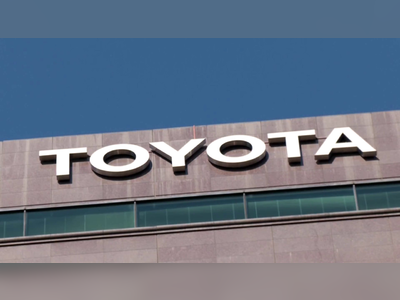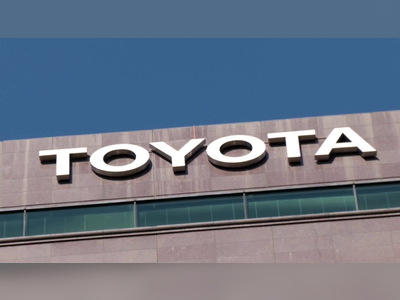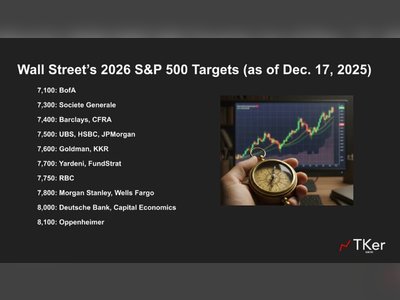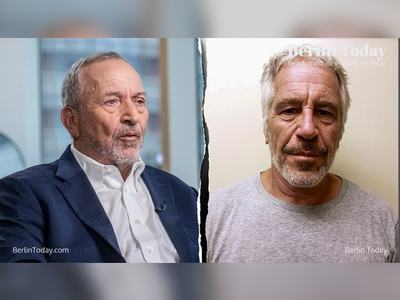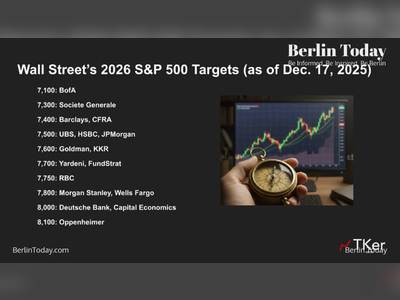Warren Buffett Announces Retirement from Berkshire Hathaway Leadership
The legendary investor plans to step down by year-end, recommending Greg Abel as successor.
Warren Buffett, the renowned CEO of Berkshire Hathaway, announced plans to retire from his leadership role by the end of 2025 during the annual shareholders meeting in Omaha.
At 94 years old, Buffett expressed that it is time for Greg Abel, the company’s vice chairman for non-insurance operations, to ascend to the position of chief executive officer.
Buffett intends to remain as an advisor but emphasized that Abel will be responsible for decision-making.
Buffett has presided over Berkshire Hathaway for approximately 60 years, transforming it from a struggling textile company into a multinational conglomerate renowned for its diverse investments.
Under his stewardship, Berkshire Hathaway has reported returns that consistently outpace the broader stock market.
The holding company owns several well-known subsidiaries, including the insurance provider Geico, railway company BNSF, fast-food chain Dairy Queen, and battery manufacturer Duracell, as well as significant equity stakes in major corporations like Apple and Coca-Cola.
Buffett shared his retirement plan at the conclusion of a five-hour Q&A session with shareholders, revealing that only his two children were privy to the information before the actual announcement.
He stated that Abel was unaware of his plans until they were disclosed at the meeting.
Buffett confirmed he intends to retain his shares in Berkshire Hathaway and continue as an influential figure within the company.
During the shareholder meeting, Buffett also voiced criticisms of the tariff policies implemented under former President Donald Trump, cautioning against using tariffs as a weapon.
He argued that enhancing the prosperity of other nations ultimately benefits the United States.
"Balanced trade is good for the world," he stated, expressing concerns about fostering a global economy where nations consider themselves victorious at the expense of others.
In financial updates presented during the meeting, Berkshire Hathaway reported a significant decline in operation profits for the first quarter, which fell 14% to $9.64 billion, influenced by severe wildfires in California earlier this year.
Net earnings saw a drastic drop of 64%, amounting to $4.6 billion, primarily driven by unrealized stock losses, particularly in relation to its investments in companies like Apple.
However, the company's cash reserves increased, rising from $334.2 billion at the end of the previous year to $347.7 billion.
At 94 years old, Buffett expressed that it is time for Greg Abel, the company’s vice chairman for non-insurance operations, to ascend to the position of chief executive officer.
Buffett intends to remain as an advisor but emphasized that Abel will be responsible for decision-making.
Buffett has presided over Berkshire Hathaway for approximately 60 years, transforming it from a struggling textile company into a multinational conglomerate renowned for its diverse investments.
Under his stewardship, Berkshire Hathaway has reported returns that consistently outpace the broader stock market.
The holding company owns several well-known subsidiaries, including the insurance provider Geico, railway company BNSF, fast-food chain Dairy Queen, and battery manufacturer Duracell, as well as significant equity stakes in major corporations like Apple and Coca-Cola.
Buffett shared his retirement plan at the conclusion of a five-hour Q&A session with shareholders, revealing that only his two children were privy to the information before the actual announcement.
He stated that Abel was unaware of his plans until they were disclosed at the meeting.
Buffett confirmed he intends to retain his shares in Berkshire Hathaway and continue as an influential figure within the company.
During the shareholder meeting, Buffett also voiced criticisms of the tariff policies implemented under former President Donald Trump, cautioning against using tariffs as a weapon.
He argued that enhancing the prosperity of other nations ultimately benefits the United States.
"Balanced trade is good for the world," he stated, expressing concerns about fostering a global economy where nations consider themselves victorious at the expense of others.
In financial updates presented during the meeting, Berkshire Hathaway reported a significant decline in operation profits for the first quarter, which fell 14% to $9.64 billion, influenced by severe wildfires in California earlier this year.
Net earnings saw a drastic drop of 64%, amounting to $4.6 billion, primarily driven by unrealized stock losses, particularly in relation to its investments in companies like Apple.
However, the company's cash reserves increased, rising from $334.2 billion at the end of the previous year to $347.7 billion.
AI Disclaimer: An advanced artificial intelligence (AI) system generated the content of this page on its own. This innovative technology conducts extensive research from a variety of reliable sources, performs rigorous fact-checking and verification, cleans up and balances biased or manipulated content, and presents a minimal factual summary that is just enough yet essential for you to function as an informed and educated citizen. Please keep in mind, however, that this system is an evolving technology, and as a result, the article may contain accidental inaccuracies or errors. We urge you to help us improve our site by reporting any inaccuracies you find using the "Contact Us" link at the bottom of this page. Your helpful feedback helps us improve our system and deliver more precise content. When you find an article of interest here, please look for the full and extensive coverage of this topic in traditional news sources, as they are written by professional journalists that we try to support, not replace. We appreciate your understanding and assistance.




